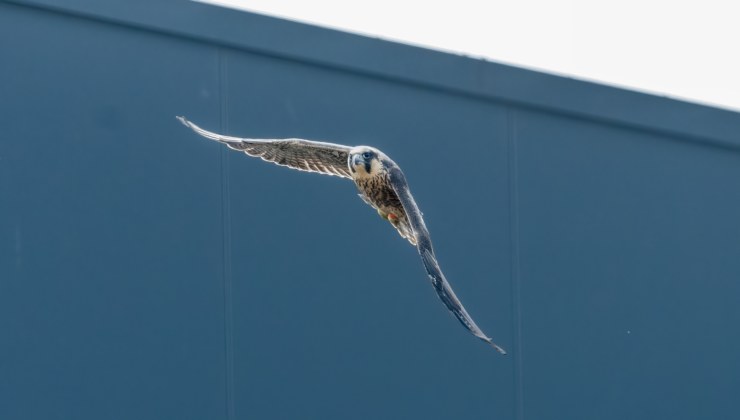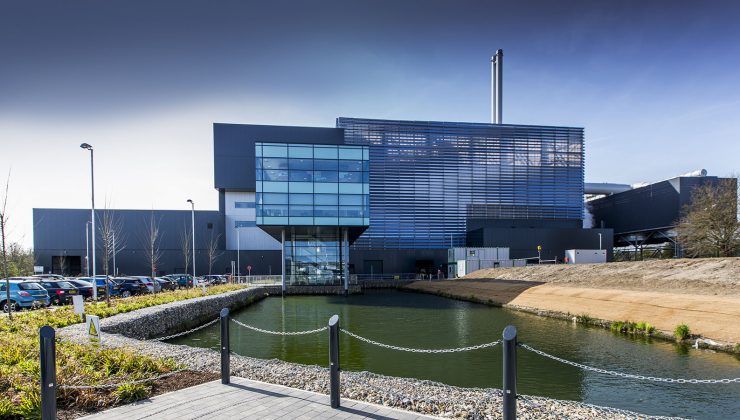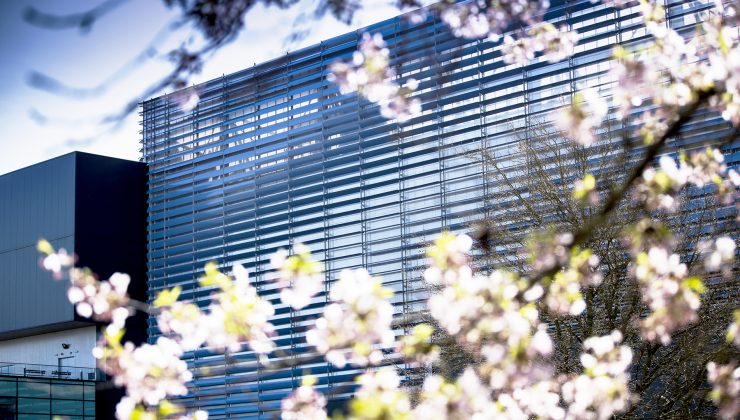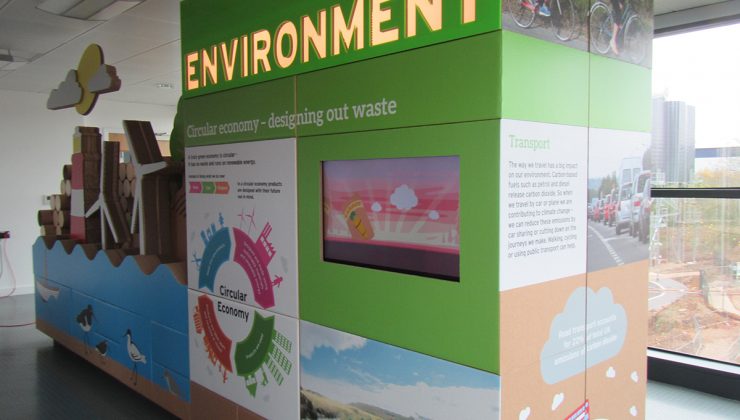14th June 2022
Peregrine falcon chicks hatch at the energy-from-waste facility in Suffolk
A pair of rare peregrine falcons nesting at the Suffolk energy-from-waste facility in Great Blakenham, near Ipswich, have successfully hatched four chicks.
Attracted to the tall, cliff-like building, the site has been home to the pair of returning adult birds since 2019. Staff at the plant first observed in April that the pair, which nest in a purpose-built box on top of the boiler house, had laid four eggs. They successfully hatched in May. The chicks add to the wide-ranging efforts from SCC and SUEZ to encourage and develop biodiversity on site, including five beehives and a wildflower meadow.
Peregrines are a large and powerful falcon with long, broad, pointed wings that chase prey in flight. By the mid 1960’s 80% of the peregrine population had been lost due to illegal hunting practices and contamination of food supply from historic use of toxic agricultural chemicals. Since the banning of these pesticides the peregrine numbers have slowly recovered, with the east of England being one of the last areas to recover.
After the pair were regularly spotted at the site, the team at the Suffolk energy-from-waste facility and Peter Merchant, a local ornithologist, were keen to encourage the growth of the peregrine population in the east of England by creating a purpose-built nesting box. After a few tweaks to the positioning and grit size, the team were delighted to see four eggs in the box in April.
Peregrines are still persecuted today and are a Schedule 1 listed species under The Wildlife and Countryside Act. By providing a safe and protective environment for the nest to thrive, Suffolk County Council and SUEZ are helping the recovery of this protected species.
Supporting biodiversity is one of the key values at the site, with many initiatives in place to support the local ecosystem. The site is home to a large wildflower meadow which is pollinated by a colony of approximately 250,000 bees in five beehives. There are a number of mature trees as well as a newly planted hedgerow made of six varieties of native trees. The team has also created habitats for other local wildlife including the installation of a bug hotel and swallow boxes.
Across the UK, SUEZ has reinvented their business to support the transition to a circular economy, committing to measure and report performance against the triple bottom line of people, planet, and profit. Each of the more than 300 sites in the UK have developed a biodiversity action plan and appointed a Sustainability Champion to help promote and enable sustainability in the communities they serve. At a national level, SUEZ has pledged support to the Get Nature Positive campaign which aims to protect and restore the natural world by putting nature and biodiversity gain at the heart of decision-making and design.
Councillor Richard Rout, Suffolk County Council Cabinet Member for Finance and Environment said: ‘“Suffolk County Council has committed to using its land and assets to enhance biodiversity, and to working with our partners and stakeholders across Suffolk to proactively support nature. This story is a great example of that commitment in practice. By working with our waste partner SUEZ, our energy from waste facility hosts wildflowers, waterfowl, bees and now a family of peregrine falcons. I hope this inspires other sites and landowners to think about how they too can provide habitats and help support nature.”
John Tatton, Plant Manager for SUEZ recycling and recovery UK said: “Each day we focus on managing Suffolk’s household waste responsibly, putting it to good use as a fuel to generate electricity. Sustainability is at the heart of what we do, so it makes sense to extend that focus to protecting the wildlife that we are so lucky to have all around us here in Suffolk. We are thrilled to see the young falcons thriving in their new home and to have been able to support the recovery of this important species.”
Peter Merchant, Suffolk peregrine projects, said: “My prime aim is to assist industry to integrate schedule 1 protected birds into the industrial working environment. Since 1983, I have been licensed by DEFRA to recover and rehabilitate injured birds of prey and registered to monitor for these species by the British Trust for Ornithology. This site is different to my previous projects as the location and temperatures above the boiler house create a totally different environment for the birds. The have been rung and registered with the British Trust for Ornithology.”
Photo credit of falcon chicks: Steve Plume www.ukwildlife.me.uk





